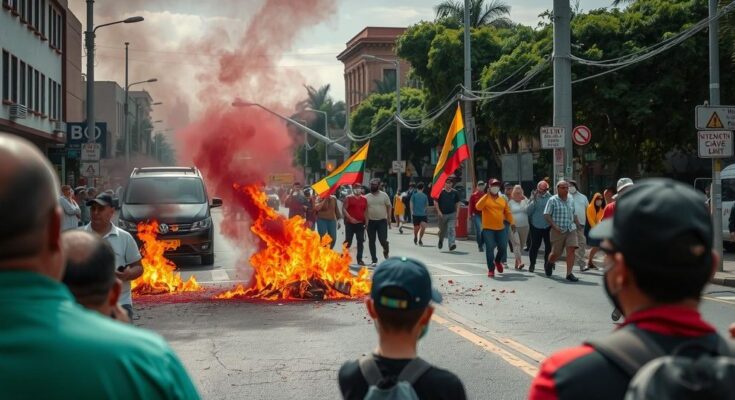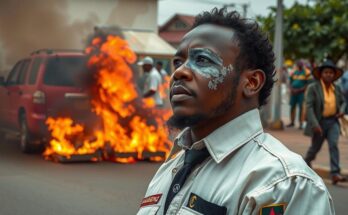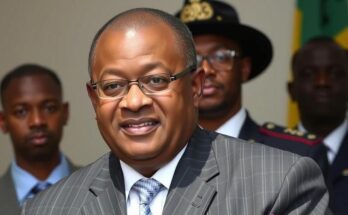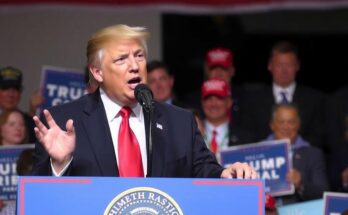Bolivia is currently embroiled in protests and violent clashes, primarily due to internal conflicts within the ruling MAS party, highlighting a power struggle between President Luis Arce and former President Evo Morales. Similar protests also plague other Latin American countries, including Peru and Ecuador, signaling a regional pattern of political instability and public dissatisfaction driven by economic challenges and government repression.
Protests and violent demonstrations have recently enveloped Bolivia, continuing for over two months, reminiscent of unrest in other Latin American nations such as Ecuador, Peru, and Colombia. The current unrest in Bolivia primarily stems from the discord within the ruling Movement for Socialism (MAS) party, as President Luis Arce and former President Evo Morales vie for leadership. These conflicts illuminate a broader decline of the left in Bolivia, prompting questions about the region’s political stability as protests arise from both immediate grievances and longstanding issues.
Evo Morales, who became Bolivia’s first indigenous president in 2006, gained fame for advocating for Indigenous rights and alleviating poverty; however, he faced criticism for authoritarian practices during his administration. Following a controversial election in 2019, he fled to avoid allegations of electoral fraud, but returned to influence the political system upon Luis Arce’s election in 2020. As tensions rise between the two leaders with Morales facing serious legal challenges, the power struggle has adversely affected the country’s already precarious political situation. Moreover, growing public dissatisfaction is driven not only by political conflicts but also by economic hardships, including fuel shortages and inflation, complicating efforts to navigate the ongoing crisis.
The unrest is not confined to Bolivia. In Peru, the government grapples with one of the lowest approval ratings globally, causing widespread protests primarily fueled by public frustration over corruption and human rights abuses linked to violent governmental responses to dissent. Similarly, Colombia is experiencing discontent directed at President Gustavo Petro’s social reforms, with protests escalating as opposition groups resist government initiatives that they perceive as overreach. In Ecuador, the government faces violence resulting from organized crime clashes and public outrage against unreliable services, including frequent power outages.
As Bolivia approaches its presidential elections scheduled for 2024, the political landscape remains unpredictable. Although President Arce’s candidacy is anticipated, Morales’s legislative restrictions may influence future developments. The apparent fractures within MAS present potential avenues for change, yet no emerging opposition party currently holds equivalent support. An ongoing climate of volatility across Latin America suggests that the situation may evolve with significant ramifications for governance and societal stability.
The article delves into the current political turmoil in Bolivia, exploring the underlying issues stemming from internal conflicts within the ruling Movement for Socialism (MAS) party. It highlights the power struggle between President Luis Arce and his predecessor Evo Morales, set against the backdrop of broader economic troubles and public discontent in the region. The historical context of Morales’s presidency, his fall from grace, and subsequent attempts to reclaim power are critical to understanding Bolivia’s present unrest. Furthermore, parallels are drawn to other South American nations also facing significant protests and political instability, illustrating the pervasive dissatisfaction across Latin America.
In summary, Bolivia is experiencing significant civil unrest characterized by protests and violence, drawing attention to the internal strife within the MAS party as President Luis Arce and former President Evo Morales contend for leadership amidst economic and social turmoil. This crisis reflects broader trends of discontent across Latin America, where countries such as Peru and Ecuador are also battling political instability and public outrage. As Bolivia heads towards upcoming elections, the situation remains fluid, with potential for transformation in the nation’s political framework.
Original Source: www.firstpost.com




